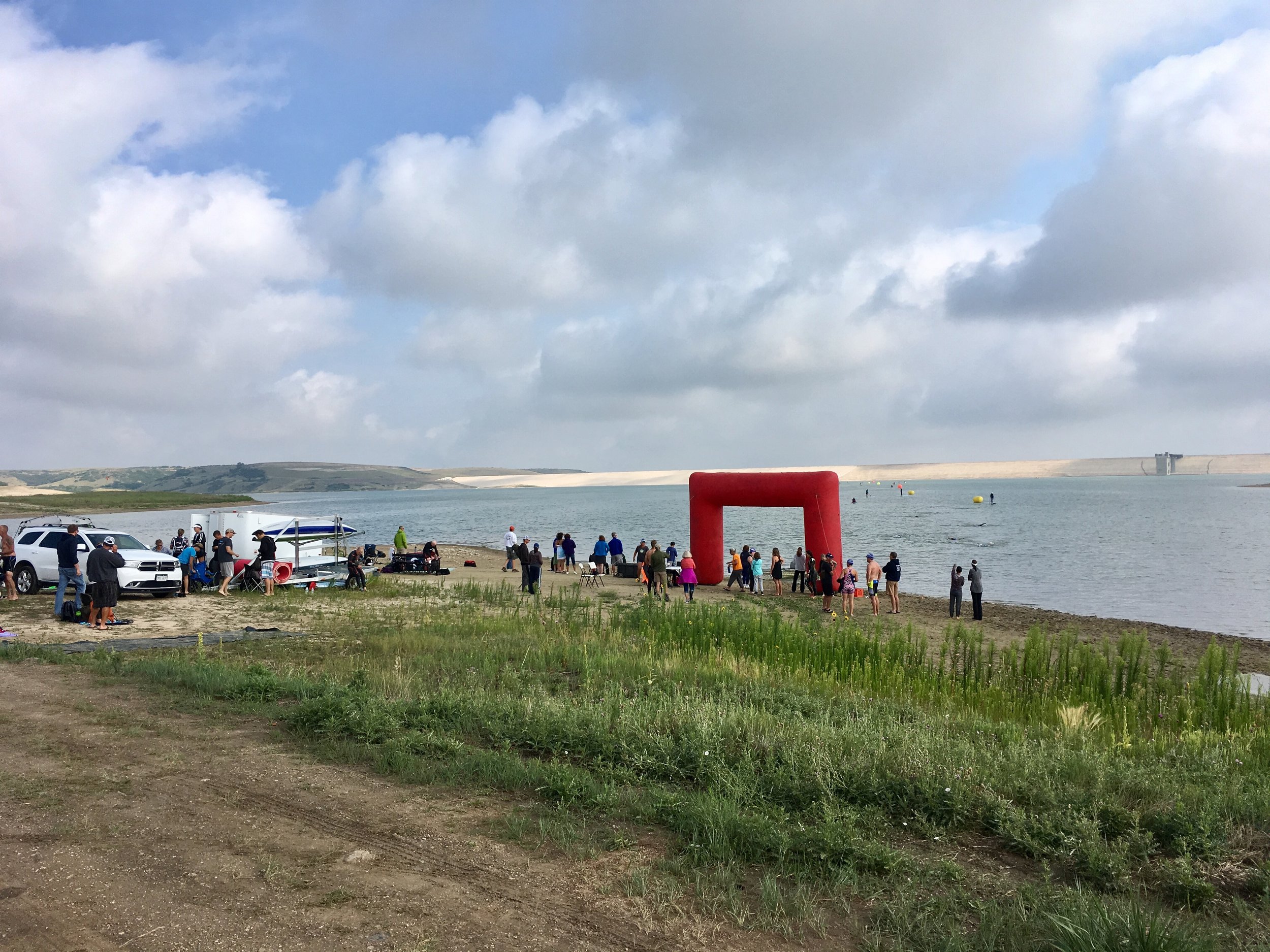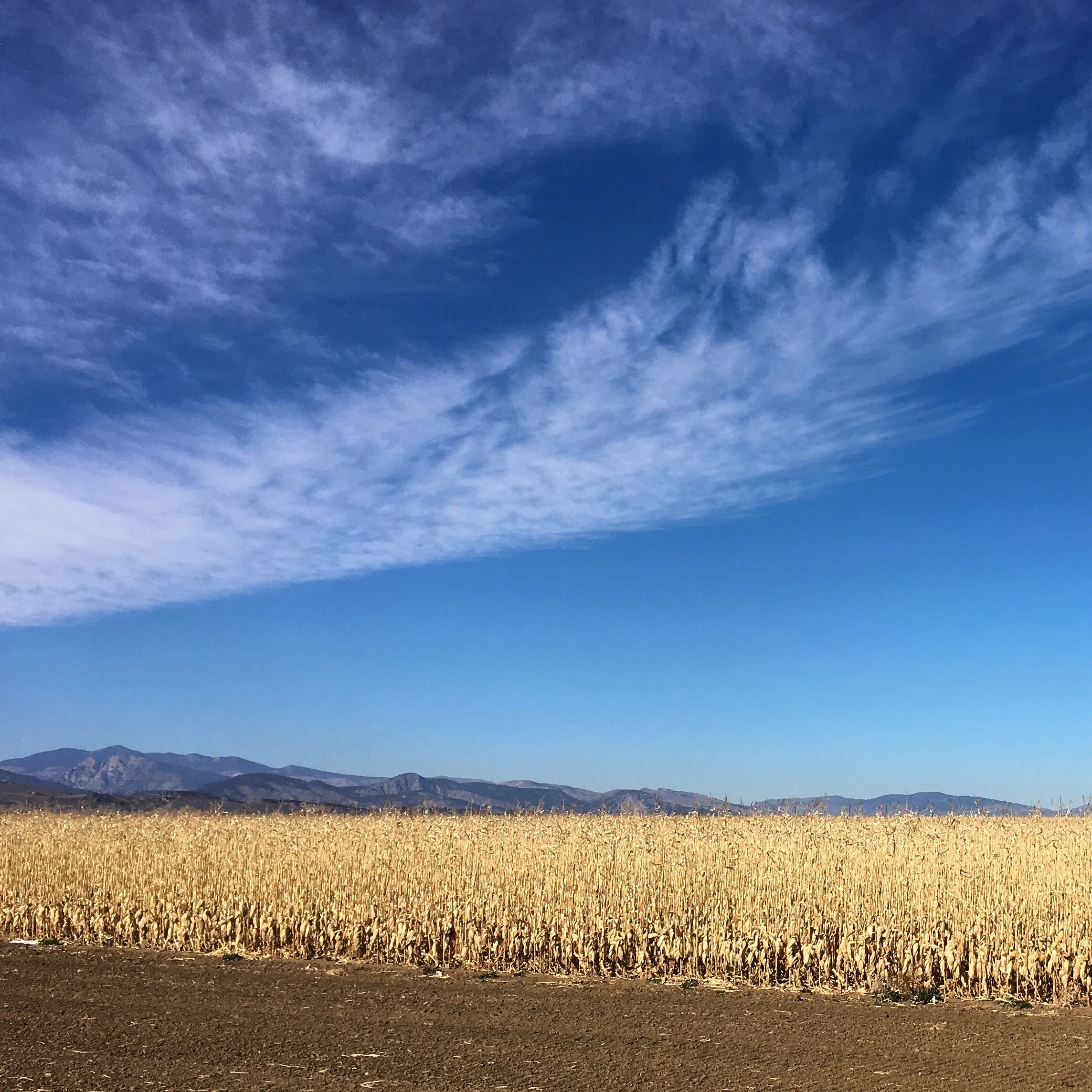First of all, I didn't race this: I just did it. This was my first open water swim at this distance, and while I knew I could do it, I wasn't interested in speed. But also, the weather was a bit nuts. I woke at 4:45am to drive from Loveland to Parker. I arrived at 6:15am and made my way to the beach. The last 10 miles or so of the drive were incredibly foggy. It was my first time to Parker, so I didn't really know where I was going: luckily the directions were very easy to follow (it's right off I25).
When I arrived at check-in, people were just standing around, clearly worried about the visibility. Race director Lance Panigutti got on the loud-speaker and assured everyone that we WOULD be swimming, even if that meant going in lots of small circles instead of the planned 1.2-mile loop. At that point we couldn't even see the first buoy in the water, and he admitted that they had gotten turned around in the boat just trying to place the second buoy.
After a delay of 30 minutes, Lance announced that we were going to start at 7:35am: the fog had lifted a bit, but was settling back in. They had managed to set the planned course: an out and back counter-clockwise 1.2-mile loop. The water temperature was 72-degrees, and the air temperature was 56-degrees, so it felt better being in the water than standing on shore. I felt warmed up at the start, and wasn't at all nervous--I was just there to try the distance. I didn't taper in any way for this event, so I had been doing plenty of swimming, biking, and running all week. By the time I got to the middle of the course, I had to pop my head up and stop swimming a few times. Others around me also stopped swimming, realizing we could no longer see any buoys. Some people started yelling for the folks on the SUPs to get directions. The fog was very heavy again. As long as you weren't trying for a specific time, it was pretty funny.
By the time I started the second loop of the 1.2-mile course, things were much clearer. It's amazing how much faster you can go when you can see where you're going! The last 1K yards were great: I could see, the water was amazing, and the sun was coming out. I'm getting ready for a trip to Hawaii next week, and am signed up to do an ocean swim at a similar length, so I'm glad I know what it feels like.
Parker (Rueter-Hess Reservoir) is beautiful, and this water is the cleanest I've been in. I'd definitely do this event again, hopefully with visibility for the entire swim!



















